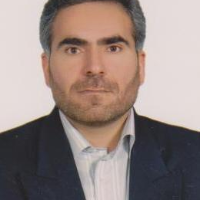Elections and Resource Mobilization: A Theoretical Model for Explanation of Electoral Competitions
The main objective of this study is to present a theoretical model for explaining how one or more candidates or parties defeat their rivals and win in the national elections. Based on the framework of resource mobilization theory (RMT), different factors at different levels which determine the probability of the victory of a candidate in the presidential and parliamentary elections will be examined. The electoral resources—which are crucial to the success of candidates— include a collection of resource (e.g., explicit and hidden knowledge resources (KR), needs resources (NR), power resources (PR), influence and persuasion, moral resources (MR), facilitation resources (FR), and unforeseen resources (UR)). The relative importance and effectiveness of these six electoral resources are dissimilar. For instance, moral resources are the most sensitive and necessary requirements for entering an election race and remaining throughout the entire election cycle. Knowledge resources are second in importance, and their effectiveness primarily depend on a candidate's capabilities. The financial resources and social mobilization network are two of the facilitation resources which help to reduce a candidate's electoral expenses and/or increase his/her social and political capital. Among the unforeseen resources, the unfortunate events (e.g., wars, terror attacks, and economic crises) might provide opportunities for the conservative candidates, while the incidence of peace and favorable weather conditions often create opportunities for the reformist and change-seeking candidates.The author attempts to find appropriate answers to the following primary and secondary research questions: 1. How do candidates win the elections against their competitors in electoral competitions? 2. What resources are needed to win the elections? 3. How should these resources be mobilized? In the hypothesis of the present study, it is claimed that the victory of a candidate in an election depends largely on a combination of factors, notably the resource mobilization, the degree of success in persuading the voters and other stakeholders in the elections to support their candidacy, and the amount of luck resulted from particular unforeseen events with positive consequences for the candidate, or negative consequences for the rival candidates. Within the theoretical framework of resource mobilization theory, the method of data collection and analysis is based on a careful review and qualitative content analysis of the available evidence and the arguments presented in earlier studies on the subject of presidential and parliamentary elections and voting behaviors. The findings of previous research have indicated that the probability of success of a candidate is higher than the other competitors, when a candidate or his/her political party use the best way to mobilize electoral resources to persuade the voters and other actors in different stages of the election process—ranging from registration, qualification, debates, nomination, voting, post-election acceptance—to support him/her instead of other candidates. The main conclusion of the research is that the availability of the electoral resources is important, but their timely mobilization and allocation in the optimal way by a candidate and his/her supporters are crucial in persuading the key actors (i.e., the electoral officials who must approve his/her credentials, the media and powerful political parties and factions who must nominate and publicize their support for him/her, and the voters who vote) to act in his/her favor. Persuasion is the result of prudent resource mobilization, and luck is increased by the occurrence of unanticipated events with repercussions for the outcome of the elections.
-
A study of the data of the Foundation of Political Expediency in Imam Khomeini's Thought "Meaning, reference and reference of diagnosis and expediency"
Nuralah Gheisari, Mohsen Khaki *, Alireza Khosravi, Ebrahim Mottaghi
Scientific Research Journal on Islamic Revolution, -
Information technology and the expansion of the governing capacity of modern governments based on persuasion and soft power
Nuralah Gheisari *, Saeid Amankah
Soft Power,


